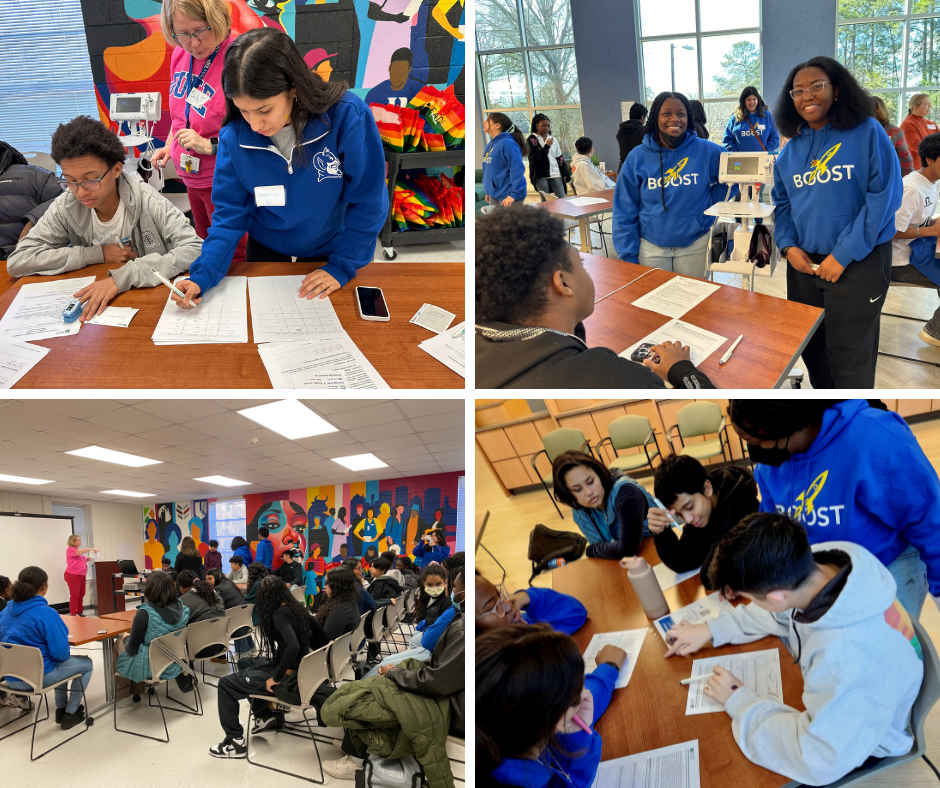
More than 20 seventh-grade science students gained a hands-on overview of clinical research and the importance of research in improving health at the Duke BOOST (Building Opportunities and Overtures in Science and Technology) program last month. The students engaged in activities based on a real-world study beginning with a research question to help evaluate potential for healthcare disparities resulting from blood oxygen readings.
BOOST is a multidimensional program designed to excite young people about science and inspire them to pursue careers in medicine and related fields. Students self-elect to participate in the program and, upon entering high school, step into leadership roles as coaches and mentors.
Through role play, participants learned the component parts of study protocol – study design, inclusion/exclusion, and risk assessments. They also completed and administered consent forms and discussed the consent process.
In small teams, they tested several types of pulse oximeters and then gathered, documented, and analyzed data. Alongside BOOST coaches, members of the Duke and CTSI and Office of Clinical Research led students in brainstorming best practices for ensuring that studies are reliable, replicable, and safe. Students then discussed the implications of their findings for effectively addressing diversity, equity, and inclusion in clinical research. The day concluded with a presentation of findings by student leaders elected by each team to represent their work.
“I was impressed by how genuinely engaged BOOST scholars were and how natural the student presenters seemed," said Molly Matlock, senior program coordinator for Duke CTSI Workforce Development. "If I were in junior high speaking extemporaneously, I would have been nervous! It feels great thinking about how they will carry these skills with them in the future.”
The workshop was developed by the Workforce Development Working Group of the Duke Research Equity and Diversity Initiative (READI) and was hosted at Duke Research @ Pickett Road.